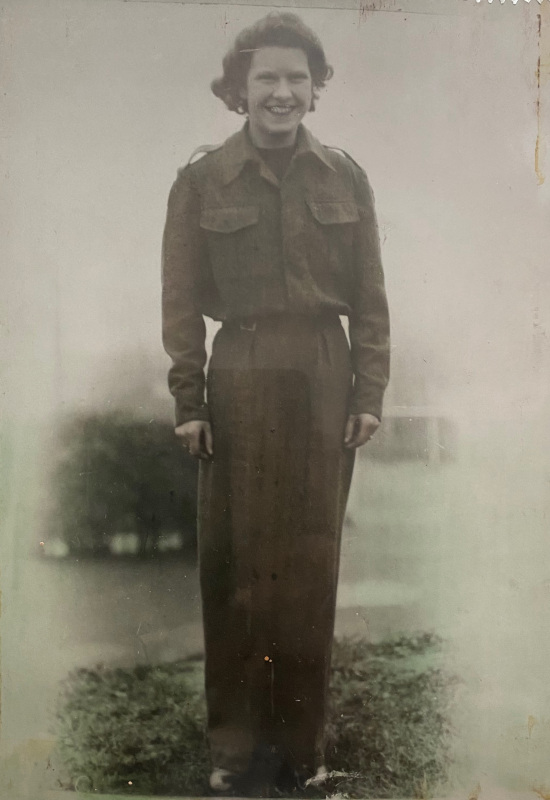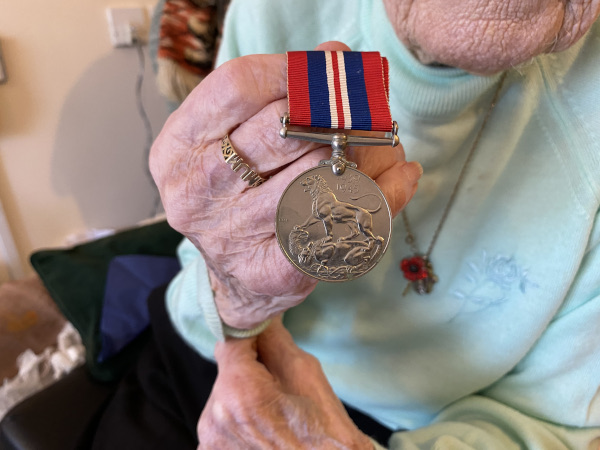WWII stories: Female gunner served in brother's name

Artillery veteran Mary was among thousands of women who served in the Auxiliary Territorial Service during the Second World War, working as an anti-aircraft gunner providing defence against German bombers.
When Mary’s older brother was killed at Dunkirk in May 1940, the courageous teenager made a pledge to fight in his name.
Joining the Auxiliary Territorial Service – the women’s branch of the Army during the Second World War – when she was just 18, Mary played a significant role in defending the nation.
Now aged 102, the former Royal Artillery gunner has spent a lifetime supporting the armed forces.
Tragedy at Dunkirk
"I was 16 when my brother Thomas Frederik was killed at Dunkirk," explains Putney-based Mary, who grew up in London’s East End.
"He was 18, just a child, and so brave. When he got killed, I thought ‘I’m joining the Army, I can fight them all’.
"I joined the ATS – the Auxiliary Territorial Service – in 1942. You didn’t know what you were going to do, if you did then half of them wouldn’t have joined."
Watch Mary tell her story
The work was risky – Mary recalls one of the men on her battery lost all his fingers on one hand when he became trapped in a gun’s cog.
The team could be called out at any time of day or night, but Mary remembers her father’s pride when she had a home visit and her enjoyment of the work.
"We had the scary times but I enjoyed my life in the Army," says Mary, who later went on to sell the symbolic Remembrance Day poppies outside Putney Rail Station for 39 years on behalf of the Royal British Legion.
"I always had the thought, ‘I can fight back with the guns, civilians can’t fight back with anything’. I’m glad I went in it."

Vital contribution
Working in a Royal Artillery regiment, Mary and the other ATS recruits made a vital contribution to the war effort but she highlights the differences in how they were addressed.
"It was a long time before they called us gunners, because we were just privates, and then eventually they said we were the same as the men," adds Mary, who later received a WWII military campaign medal for her service during the war.
"Then we started being called gunners. It was good to know you were doing something."
Discover more Second World War stories.
